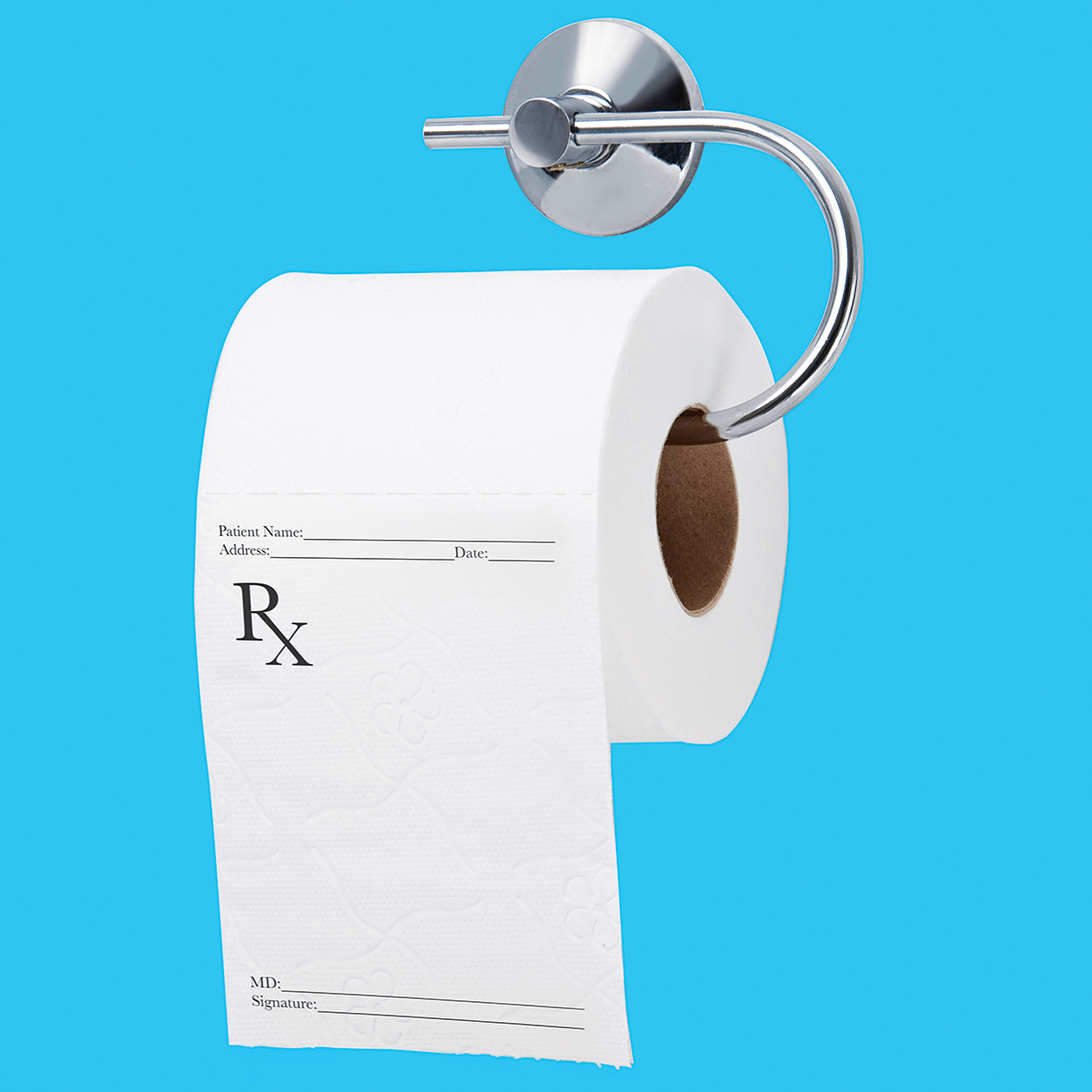Your Stool Could Be the Next Breakthrough in Medicine

llustration by Kyle Mercer
Zain Kassam can sum up his workplace in one sentence: “Think of it like the Red Cross,” he says, “but for poop.”
Kassam is the chief medical officer at OpenBiome, the only stool bank in Massachusetts and the largest in the world. The facility accepts feces from ultrahealthy donors and uses it for a process called fecal microbiota transplantation (FMT). Using either fecal transplants delivered by enema or “poop pills,” which Kassam swears are easy to swallow and taste-free, FMT replenishes sick patients’ good bacteria.
Most often, the treatments target C. difficile, a bacterial infection that affects about half a million people in the U.S. each year. FMT has an impressive 89 percent success rate against C. diff—but that’s just the beginning. Through numerous ongoing and upcoming studies, including quite a few in Boston, OpenBiome hopes to find more uses for its, er, products.
Here’s a Sampling of How Your Poop Could Cure Disease:
Study Target: Obesity
Partner: Brigham and Women’s Hospital
To Determine If: Replacing overweight patients’ gut bacteria with that from stool donors could help them shed pounds.
Study Target: Ulcerative Colitis
Partner: Boston Children’s Hospital
To Determine If: Giving patients a fecal transplant, followed by a seven-week stool-capsule regimen, could ease this inflammatory bowel disease.
Study Target: Crohn’s Disease
Partner: Beth Israel Deaconess Medical Center
To Determine If: Replacing traditional therapies with FMT could reduce the small-bowel inflammation characteristic of Crohn’s disease.
Study Target: Liver Disease
Partner: Brigham and Women’s Hospital
To Determine If: Resetting patients’ microbiomes could help treat primary sclerosing cholangitis, which currently has no cure.
Want to Donate Stool?
“We’re trying to select for the Olympic athletes of poop,” Kassam says. “It’s actually much easier to get into Harvard than it is to be a poop donor.” He’s not joking: OpenBiome accepts only 2.8 percent of applicant donors. Possible reasons for exclusion, he says, include infections, obesity, age, and microbiome diseases—anything that could compromise your internal bacteria. On the bright side, those who do make the cut are paid $40 per sample.

